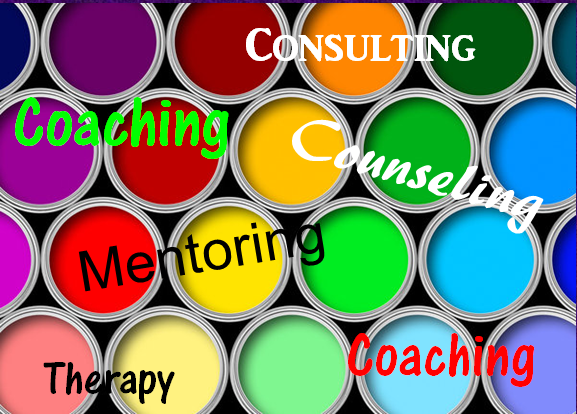Alongside his coaching practice, he runs his research portal Know Your True Self Research Academy (www.kyts.in).
He is among the pioneer promoters of Emotional Health and well-being in India since 2005 and runs his initiative MEHAC - Mental & Emotional Health Awareness Campaign to not only spread awareness but also to equip the individuals to take charge of their emotional health and well-being in their own hands.
- The Dodo Bird Verdict: Why the Therapist-Client Bond Matters Most - November 16, 2024
- Can we LOVE without being LOVED ? - June 11, 2023
- Are you dealing with a TOXIC personality or TOXIC culture in your life? Check it out before it gets too late……. - April 6, 2022

Similar but distinctive modalities
And when we talk about Life Coaching which is the newest entrant in the universe of helping services, it is making its entry into our lives with a strong promise of not only providing a helping hand but also serves as a catalyst to achieve our goals in personal and professional lives.
But still, many of us, especially those who have not experienced any of these modalities or don’t have a clear idea of what purpose they serve, do confuse with these similar terms of coaching, counseling, consulting, mentoring, or therapy. And truly speaking I was also on the same platform until I myself researched deeply about them and became a professional life coach. I found out that many times these modalities are being used in combination to get the desired results but still individually serve different purposes.
For example, when I come across someone during our coaching sessions that he needs a particular kind of consulting, counseling or therapy which is beyond the limits of life coaching or which does not fall under the premise of life coaching, I always recommend and suggest my clients seek proper help from other experts.
So, though All these paradigms are distinctive in nature yet similar in many aspects. Practitioners of these modalities often employ techniques from either of the paradigms or a mix of them when dealing with clients. It is also important to know that these fields can coexist or I can say they do co-exist and benefit from each other when used in tandem. But understanding the similarities and differences of these modalities will really help us to use the right kind of help and support when we need it the most.
Here let me share with you the brief definition and summary of each modality so as you get a fair idea of what purpose each modality serves. Let’s start with coaching.
Disclaimer 1:
I would like to specifically mention here that the definitions used in this article are in no way exact or final. I highly suggest that if you want to go deeper into the aspect of these modalities, you do your own homework and research in detail.
Disclaimer 2 : Gender-Specific Term
Throughout the post, gender-specific terms may be used in order to ease the text flow. Whenever a gender-specific term is used, it should be understood as referring to both genders, unless explicitly stated.
Counseling
Counseling is giving advice and suggestions to the client (the person who is using the counseling services) on issues that involve identifying the issue, provide suggestions, and help the client to deal with it effectively. Counselors generally offer counsel to those who are facing adjustment or developmental issues. Counseling is closely allied with Therapy. Counseling is done in many specialized areas like family, career, couple, relationship, grief, de-addiction counseling, etc. Counselors come from a variety of backgrounds namely nursing, psychology, and social work. Counseling is not hand-holding like coaching and is generally focuses on a specific challenge.
Consulting
Mentoring
Mentoring in its simplest form is sharing knowledge, skills, and life experience to guide mentee (the person who is being mentored) towards helping him reach his goals effectively. Mentorship is a relationship in which a more experienced or more knowledgeable person helps to guide a less experienced or less knowledgeable person. A mentor tends to be offering his own experience as guidance, and may or may not use a coaching style. So mentors are usually not trained in listening or questioning skills, or in techniques to aid confidence, self-belief, etc. Mentoring is usually limited to areas of the mentor’s own experience.
Therapy
In simple terms, most forms of therapy, including a focus on ‘what has happened’. They are concerned with ‘the problem’ and with regaining mental balance and perspective. Therapy is the process of meeting with a psychotherapist for the purpose of resolving problematic behaviors, beliefs, feelings, and related physical symptoms. A therapist is a qualified professional who uses psychological interventions with the client (the person who is using the services of the therapist). A therapeutic alliance between the client and the therapist is formed with the purpose of helping the client overcome certain psychological dysfunctions that disrupt his personal, social, occupational, cognitive, and emotional functioning. The therapist-client relationship is terminated once the psychological contract is over.
Conclusion
About Post Author
Mahesh Sharma
Mahesh is an internationally certified LIFE purpose coach, speaker, and learning facilitator by profession and a humanist, researcher, and nature enthusiast by choice.
Alongside his coaching practice, he runs his research portal Know Your True Self Research Academy (www.kyts.in).
He is among the pioneer promoters of Emotional Health and well-being in India since 2005 and runs his initiative MEHAC – Mental & Emotional Health Awareness Campaign to not only spread awareness but also to equip the individuals to take charge of their emotional health and well-being in their own hands.